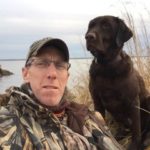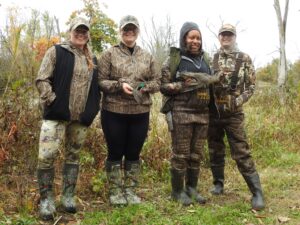 By Todd Schaller, WWA Vice President & Education Committee Chair
By Todd Schaller, WWA Vice President & Education Committee Chair
This article originally appeared in Wisconsin Waterfowl Association’s May, 2024 Newsletter edition.
In last month’s newsletter we covered Waterfowlers Academy – Learn to Hunt (LTH) year in review and lessons learned. This month we’ll touch on what adjustments WWA can make based on the challenges that were identified in the year one review. More importantly, we’ll be focusing on how WWA members can play a role in building and improving the Waterfowlers Academy – LTH program.
Growing the program and increasing capacity:
 The Academy/LTH program is a great opportunity for WWA members to play a role. Program growth occurs in two ways – increasing the number of participants per program and increasing the number of programs offered. The pinch point for both of these opportunities is the need for WWA members to step into the mentor role with an already established program or to move right into a coordinating role to start a new Waterfowlers Academy – LTH event.
The Academy/LTH program is a great opportunity for WWA members to play a role. Program growth occurs in two ways – increasing the number of participants per program and increasing the number of programs offered. The pinch point for both of these opportunities is the need for WWA members to step into the mentor role with an already established program or to move right into a coordinating role to start a new Waterfowlers Academy – LTH event.
Interested but not sure you can do it? No worries, you won’t be alone; we’ll provide the support, information and resources needed. If interested contact me at (920) 379-1704 or c217tazman@gmail.com.
Social Media as a recruiting tool:
While we learned in year one that a personal contact is the best recruiting tool, social media can create program awareness and recruit in areas where personal contacts don’t exist. We’ve already recruited four individuals through the WWA and Waterfowlers Academy social media platforms. If you are not already please follow Waterfowlers Academy (https://www.facebook.com/WaterfowlAcademy; https://www.instagram.com/waterfowlers_academy/) and Wisconsin Waterfowl Association (https://www.facebook.com/wisducks; https://www.instagram.com/wi_waterfowl_assoc/) on Facebook and Instagram.
A caution with this tool is ensuring WWA can meet the interest created, which falls back to the need for WWA members to help grow the Waterfowlers Academy program.
Participants are not members of conservation organizations:
In the program, topics to cover exceed the amount of time we have available. However, understanding the role conservation organizations play in the natural resource and conservation arena should be a priority topic. Perhaps a great lunch discussion would be a conversation about the importance of conservation organizations informing the participants on the impact and benefit of a variety of institutions so they can make a personal decision to support some groups based on their location and/or interests.
Additional time for interaction with mentors and participants:
At the Trempealeau – For Women By Women event, the coordinators are exploring how to create the “hunting camp” experience, since this program includes an overnight stay and meals. This is an exciting thought to promote unity and fun, since who doesn’t enjoy “hunting camp”. We’ll share some strategies on how this format might be implemented in 2025.
Not all events provide this “hunting camp” opportunity, so we’re looking to use online conferencing (Zoom) as a way to connect mentors and participants prior to the face-to-face formal program. This tool also may help manage the topic/time challenges previously stated. The Zoom session can also be part of the training curriculum, which takes the pressure off the training day and helps manage the information overload a participant may feel. Many new hunters also feel uneasy about what to expect in both the social setting of the LTH training and the actual hunt and these online conference opportunities helps participants ask those important questions they are curious or concerned about.
As you read this article I hope it inspires some of you to take action. The key to all the adjustments noted above is people – mentors, coordinators and participants – who are interested in giving back to the waterfowling community – WE NEED YOU!

